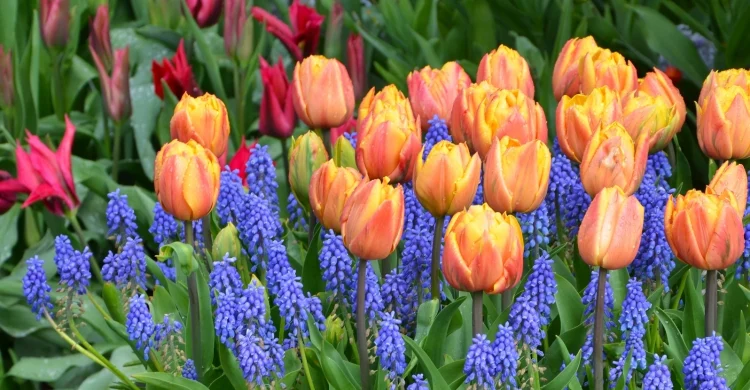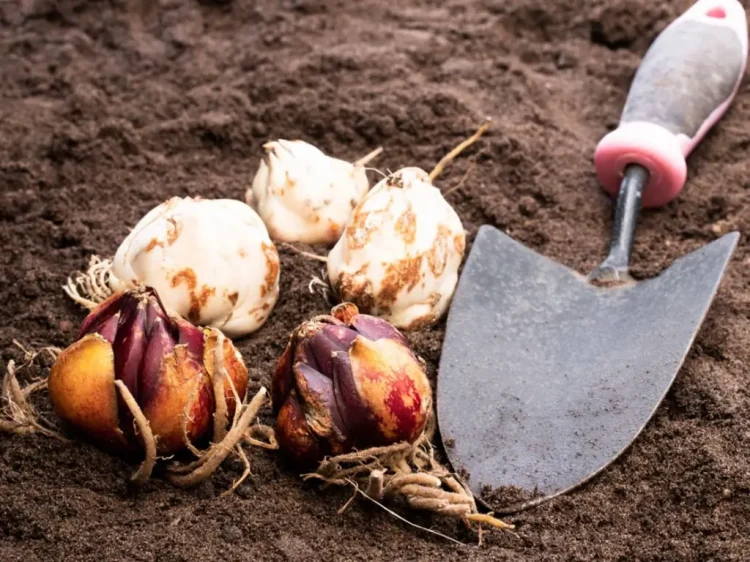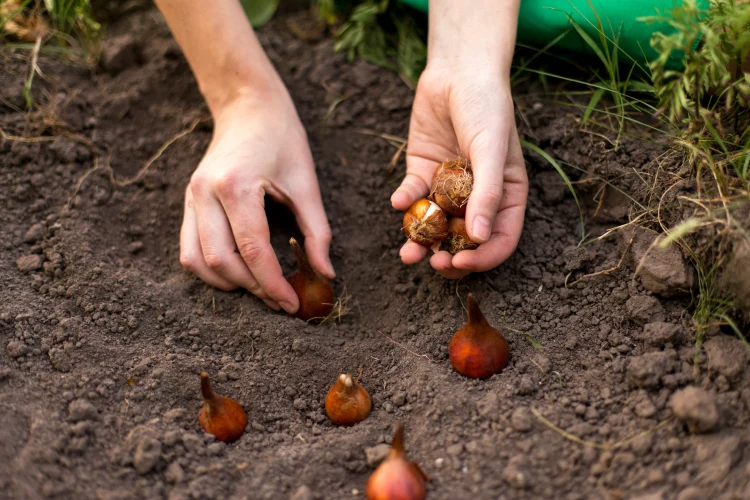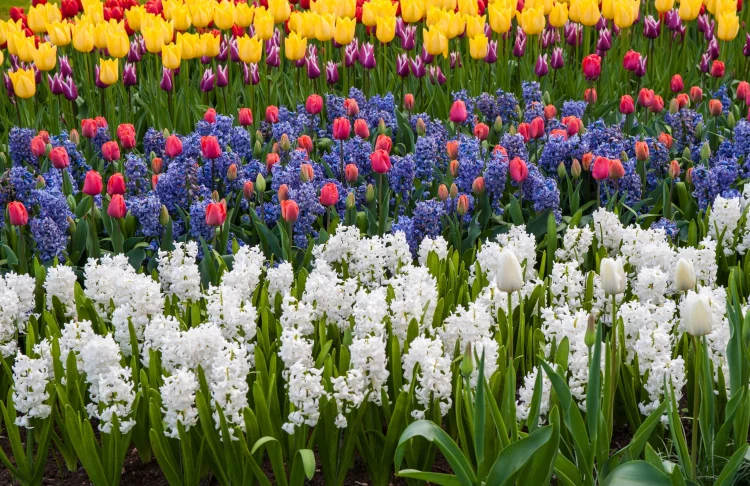Crocuses, daffodils, hyacinths and tulips – we all associate them with the arrival of spring. Their colors and fragrance attract us immensely. There is no doubt that everyone can participate in the process of planting, growing and taking care of the bulbous plants that appear with the first warm rays of sunshine. In today’s article you will find a guide to garden bulbs for beginners. We’ve detailed all the basics you need to know to enjoy a beautiful spring garden!
A useful guide to garden bulbs for beginners
We can talk a lot about the beauty and joy that bulbous plants bring to all of us. Best of all, the same splendor can easily be achieved in your garden. They are ideal for creating a natural colorful picture. Bulbous plants are actually not difficult to grow, and they multiply quite quickly if planted in the right location. But all that is yet to be talked about in the following lines!
What are bulbs in plants?
Bulbs are small underground organs with a short stem and a sharp tip. They are full of energy to grow and flower. Bulbs are very hardy to different climates and extremely easy to grow. It’s up to you to choose your favorites from the stunning selection that’s available!
Planting bulbous plants
Bulbous plants are often divided into two groups according to when they flower. Some bulbs are planted in spring, others in autumn. While summer flowering plants should be planted in spring, spring flowering plants should be planted in autumn. This way, if you plant different types of bulbs, you can enjoy flowering almost all year round. Isn’t it amazing?
Spring bulbs
The spring bulbs of plants such as Begonia, Caladium, Cyclamen, Dahlia, Freesia, Iris are planted between March and the end of May. The plants flower in summer until late autumn. These bulbs do not tolerate freezing temperatures, so they are planted after the end of the cold weather.
Autumn bulbs
The autumn bulbs of plants such as Crocuses, Snowdrops, Daffodils, Tulips, Hyacinths, and others are planted from October to December and flower from early spring. These bulbs need a cold period during the winter in order to sprout in the spring.
Important tips for planting bulbs
As you have already seen, the bulbs of the different plants are planted at the right time for them. We’ll share some tips for planting bulbs successfully, so you can enjoy their beautiful colors and fragrance!
- Soil
In general, bulbs do not require much care, but keep in mind that they need well-drained soil and sufficient nutrients. Loosen the soil a few weeks before planting and add some organic matter and complex granulated fertilizer for garden flowers.
- Light
Bulbs should be planted in a sunny spot or semi-shade. That is, they can be placed in an open spot in a garden or under deciduous trees.
- Depth
The most important thing when planting is the correct depth at which the bulbs are placed in the soil. They should not be too close to the surface of the ground, as they may freeze. On the other hand, they should not be too deep, as they may not be able to reach the ground at all. There is a general rule that bulbs should be placed at a depth of two to three times their size.
- Position
The bulbs should also be given the correct planting position – with the pointed part up. In this way the roots can grow downwards and the stems upwards towards the light.
Caring for garden bulbs
Bulb plants are relatively easy to grow, as already mentioned, and require minimal attention and care. Instead, they delight us with their beautiful flowers, so we are obliged to provide them with the best conditions possible.
- Watering
Garden bulbs are usually watered once a week or at most once every few days, but it all depends on how hot the weather is. If you notice that the leaves are starting to wilt, reduce the frequency of watering. During the dormant season, don’t water them at all. This doesn’t apply to potted plants, which may need to be watered even in winter to keep the soil from drying out completely.
- Bulb nutrition
Bulbous plants have strong roots, so they can find enough nutrients on their own when planted outdoors. But for best results, use a fertilizer high in potassium.




